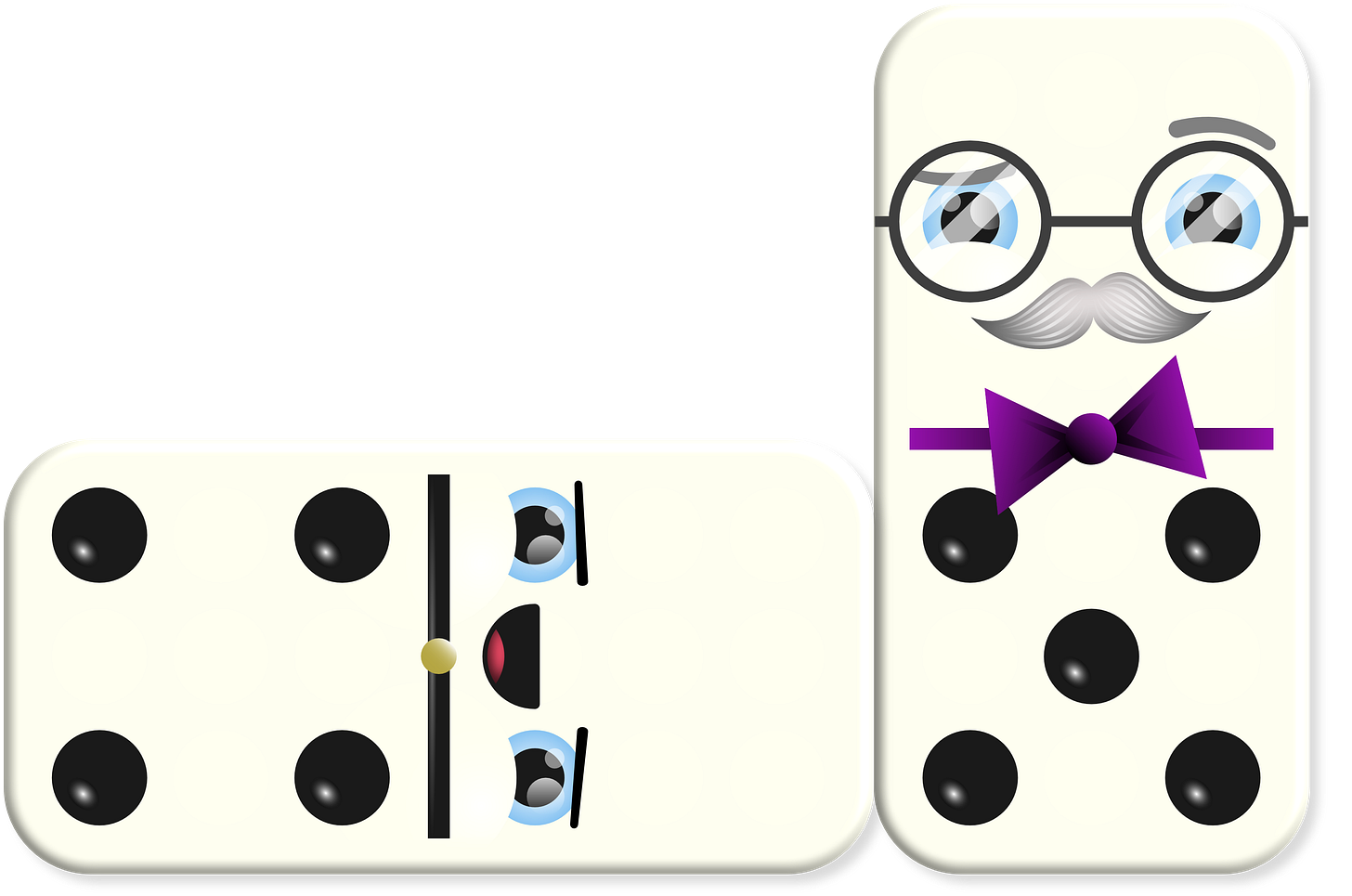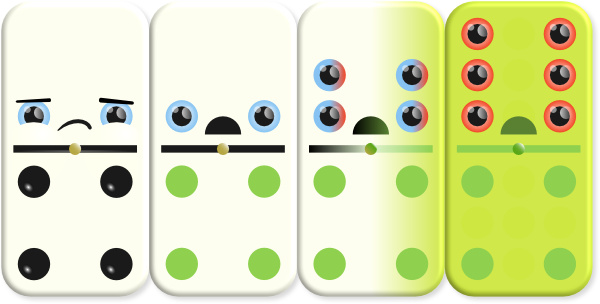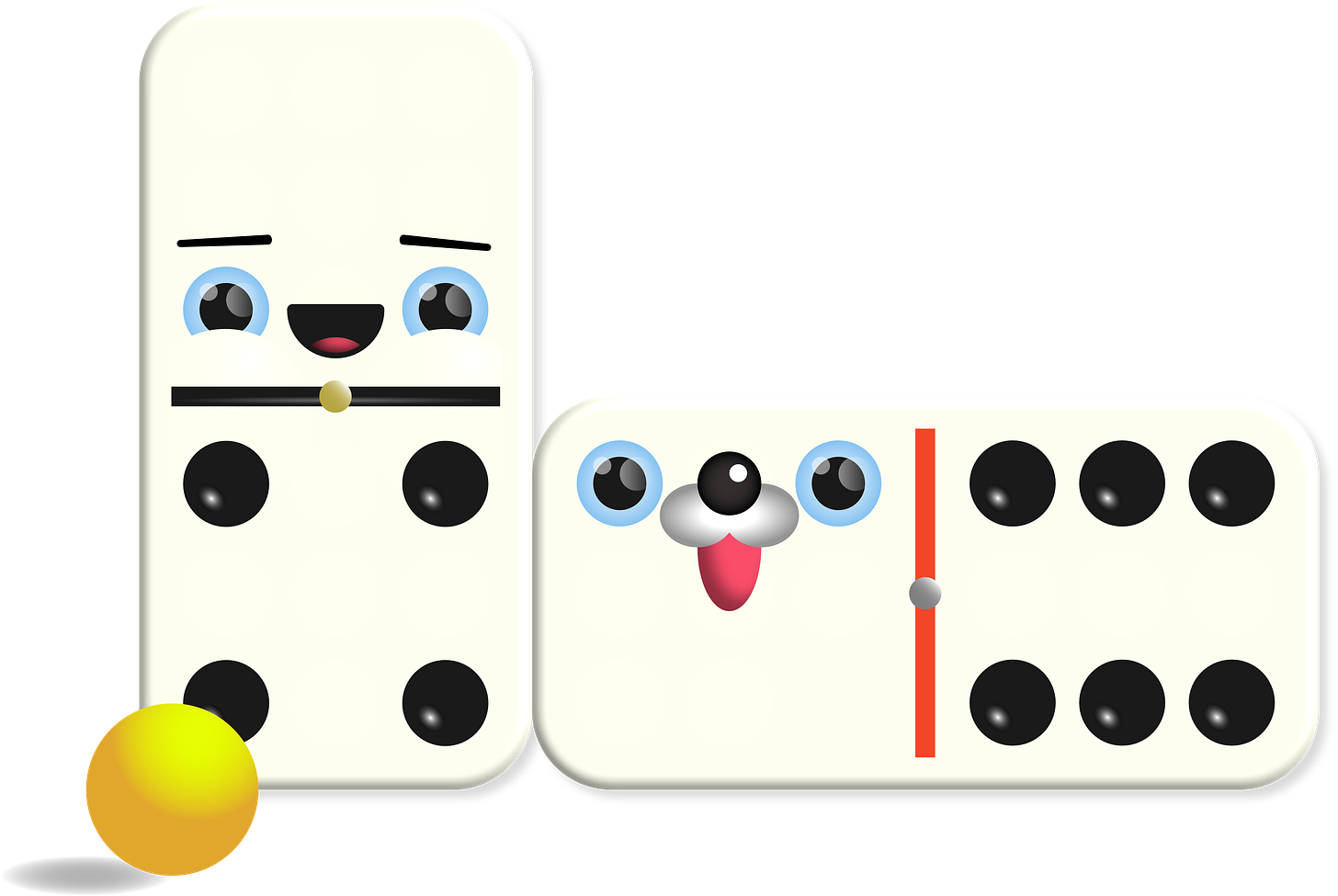Knocking the SPOTS Off Mental Health!
The "Knocking SPOTS" campaign is a mental health awareness campaign that aims to increase knowledge about common mental health issues and how to cope with them. The campaign's goal is to encourage people to take active steps better to manage their own mental health and emotional resilience. While the original campaign initially targeted teenagers and young adults, the tips provided are relevant to people of all ages.
The project was created and developed by the School of Health and Social Care based at the University of Essex with funding support from the NHS (Health Education England). The statistics are a little out-of-date. However, the situation with mental health remains broadly the same as it did when this project was first created.
The tips have been modified to make them a little more relevant to magicians, mentalists and mystery performers.
Yours Magically,
Marty
Dylan’s Story
Like many people, Dylan suffers from anxiety and depression. He's not alone. Approximately 1 in 4 people struggle with a mental health issue every year in the UK.1 In England, 1 in 6 people report that they're experiencing a common mental health condition, such as anxiety or depression, in any given week.2
In the United States, it is estimated that more than 1 in 5 adults live with a mental illness (57.8 million people in 2021).3
Many prominent people throughout history have suffered from depression. Winston Churchill, the Prime Minister of the United Kingdom (from 1940 to 1945) during the Second World War, called it his “black dog”4.
He was regularly paralysed by chronic despair, spending most of his time in bed. When his black dog visited him, he had little energy, few interests, lost his appetite, and couldn’t concentrate. However, he got help from his wife, Clementine, and had a personal physician, Baron Moran, who helped him in times of crisis. This proves that even great people struggle to maintain good mental health.
Like Winston Churchill, Dylan sometimes finds it hard to get out of bed. He also has trouble doing things he usually enjoys, such as reading new magic books and practising and performing card tricks for his friends.
This would shock those who know him best because he's usually the life and soul of the party and has a reputation for clowning around. Surely someone that happy couldn’t be suffering from depression, right?
But even when Dylan's smiling, joking and laughing, he's still suffering—he's still miserable. But he's worried about what his friends will think of him if he tells them he's depressed.
Unlike measles, a mental health condition—like depression—is an invisible illness. This makes it easy to hide and difficult to discuss. However, there are some surprisingly simple things Dylan can do to make his life better.
All he has to do is remember the word SPOTS…
SOCIALISE - Don't isolate yourself. Go to parties 🥳. Meet friends and family for a coffee, which is also a perfect opportunity to perform some magic! ☕🪄
PLAY - Play dominoes, cards or another game to lift your mood. Engage in a playful hobby. For example, join a local Bridge or tabletop gaming club, or start participating in a team sport. You could even practise and perform close-up card magic! 😉
OWN IT - Don't waste energy hiding your illness. Take ownership of it.
TALK - Talk to people that your trust in an open and honest manner. 💬
SEEK HELP - If you continue to struggle, seek professional help 👩⚕️. There is no shame in doing this!
Let’s look at each of the steps in more detail…
S - Socialise
Unfortunately, Dylan's depression has caused him to become socially alienated 👽. He spends very little time with his friends and family and, as a consequence, now feels desperately lonely.
Loneliness in itself isn't a mental health issue. However, there is a strong link between the two. Having a mental health condition often increases a person's sense of loneliness, and feeling lonely can have a negative impact on your mental health. This vicious circle can be very damaging if left unchecked.
For this reason, it is important that Dylan engages in some social activity to maintain good mental health. He must break out of his bubble of isolation and reconnect with his friends, family and coworkers.
We all have different social needs. Some people are content with a few close friends, while other people prefer to maintain a larger circle of acquaintances to feel socially satisfied. However, research suggests that most people cannot cope with more than one hundred and fifty friends. This scientific curiosity is known as Dunbar's Number and is named after the man who discovered it.5
The figure is broken down according to a "rule of three": Fifty of these people are considered your close friends, people you might invite to a dinner party. Then there's the so-called "circle of fifteen", people you see on a regular basis and rely on for sympathy. These are the friends that you feel comfortable confiding in about most things. Finally, there are your five best friends. These individuals comprise your close support group. (This breakdown is, of course, an approximation, and the groups themselves are fluid, i.e. the people in each group may change over time.)
Although it can help with depression, Dylan shouldn't solely rely on sites like Facebook, Twitter, Instagram and TikTok to satisfy all of his social needs. Engaging in conversation online might make Dylan feel less lonely, but meeting face-to-face with someone from his close support group will do him more good. This deeper connection will make him feel cared for and give him a greater sense of belonging.
Recent research has also shown that four out of the five most popular forms of social media appear to be harming young people's mental health, leading to increased feelings of inadequacy.6 Services that focus on image sharing, like Instagram, are the worst offenders and appear to cause body image worries, support bullying and promote feelings of anxiety, depression and loneliness.
However, these negative effects seem to be associated with heavy use of social media. Like almost everything in life, these sites are broadly beneficial when used in moderation and can actually strengthen your mental well-being.
Feeling lonely is a lot like feeling hungry. Just as your body uses hunger to tell your brain that you need food, loneliness is your body's way of telling you that you need more social contact.
What To Do: Make plans to connect with friends, family, or coworkers on a regular basis. Getting out of the house and socialising will give you a boost of energy and make you feel more connected.
P - Play
All sorts of different activities could help Dylan beat stress; a quick game of Yahtzee, a kick about with his mates, or just a game of fetch with his dog, Pippa. And, of course, the performance of magic or mentalism is another way to engage in playful activity.
By joining a group or club, Dylan could connect with other like-minded individuals; this will help him feel part of his local community. If he doesn't want to do this, he could play cards, even if it is just solitaire (although a game of cards is a great opportunity to spend time with others).
If he's feeling more energetic, Dylan could play a group sport, like football, rugby or cricket. A morning on the football pitch or basketball court would not only keep Dylan active but would also give him the chance to meet some new faces.
The Positive Power of Play
Engaging in playful activities can be deeply therapeutic. Concentrating on a hobby or interest, such as close-up magic, can help you forget your worries for a while and change your mood if you’re feeling down. Achieving anything, no matter how small or insignificant, can also help improve your self-esteem.
Go Green to Beat the Blues
Playing and exercising in green spaces, such as your local park or a nearby woodland, has been proven to boost mental well-being. It has been found that taking part in physical activity in a natural environment has many positive health benefits. So, Dylan should go green to beat the blues!
Likewise, blue play and exercise—playing or exercising in or near marine and aquatic environments—is also becoming more popular. This includes activities such as fishing, sailing, rowing and river swimming. All of these things can help you maintain good mental wellness.
If you suffer from poor mobility, you might want to consider one of the less physically strenuous forms of green activity, such as environmental art, gardening, reading or writing (both of which can be done outside in a green space).
Consider the following three questions to try and find a form of play or exercise that will help you relax:
What do you enjoy doing?
What activities can you lose yourself in?
What did you enjoy doing in the past?
What to do: If you're looking for a new way to meet people, consider joining a local club or organisation. There are groups for everything from magic to hiking to book clubs. If you can, try and take part in physical activity in the natural environment, as this will help improve your mood and mental well-being.
Own It
Dylan shouldn't waste time trying to hide his illness. He should take ownership of it and put all of his energy into finding ways to live with it.
Dylan shouldn't give in to the cloud of despair! We all have stormy days and sunny days. Sometimes life feels like an uphill battle, and that's OK. Keeping a mood diary might help Dylan regulate his depression. This information will also help when he tries to explain his illness to others. This can be done with a notepad and a pen, or a smartphone app, like Daylio.
Dylan shouldn't worry that expressing his negative thoughts will put people off. Connecting with others and being honest about his feelings, especially with those who care for him, will likely help his recovery.
What To Do: Own your illness, don't hide it. Try to find practical ways to manage your mental health, like keeping a mood diary.
Talk
Dylan should talk to people he trusts about his illness in an open and honest manner. Discussing your feelings isn’t a sign of weakness; in fact, it's a very effective way for Dylan to deal with the problems he's carrying around in his head.
Having a conversation, and being listened to, will help Dylan feel supported and less lonely. He should find someone he can trust (and who is easy for him to make contact with). It doesn’t need to be someone in his family or even someone he spends a lot of time with. What counts the most is that they'll be empathetic and able to understand how he's feeling.
What To Do: Find someone you trust to talk to about your thoughts and feelings. Communication works both ways; if you can share your troubles with another person, you might encourage them to do the same.
Seek Help
If Dylan is still struggling to cope, he should seek help from a professional. None of us are superhuman. We all get tired or overwhelmed at times, especially when things go wrong. Consider getting help from a healthcare professional if your feelings:
Affect your mood over several weeks
Stop you from getting on with life
Have a big impact on the people you live or work with
Shockingly, only 1 in 8 adults in the UK are receiving treatment for a mental health condition. Over a third of visits to GPs are about mental health.

What To Do: When things are getting too much for you, and you feel like you can’t cope, spot the early warning signs and seek professional help from a healthcare professional, such as your GP or a licenced therapist. Your GP may suggest ways you or your family can help. They may refer you to another part of the health service or to another health care specialist.
Connect with Others
Most importantly, Dylan should connect with others to improve his own emotional resilience. Asking for help is not a sign of weakness, it is a sign of strength.
Do you feel like Dylan? If you do, you should follow the simple advice on this page.
Please share this information with your friends and family to spread the SPOTS message and stop the silent suffering of so many people. Together we can increase our emotional resilience and reduce the stigma associated with mental health. It's time we all started to knock the spots off mental health!
So, remember the word SPOTS to improve your mental health and well-being:
SOCIALISE - Don't isolate yourself. Go to parties 🥳. Meet friends and family for a coffee, which is also a perfect opportunity to perform some magic! ☕🪄
PLAY - Play dominoes, cards or another game to lift your mood. Engage in a playful hobby. For example, join a local Bridge or tabletop gaming club, or start participating in a team sport. You could even practise and perform close-up card magic! 😉
OWN IT - Don't waste energy hiding your illness. Take ownership of it.
TALK - Talk to people that your trust in an open and honest manner. 💬
SEEK HELP - If you continue to struggle, seek professional help 👩⚕️. There is no shame in doing this!
Sally McManus, et al., “Adult Psychiatric Morbidity in England - 2007, Results of a household survey,” NHS Digital, 2009, https://digital.nhs.uk/data-and-information/publications/statistical/adult-psychiatric-morbidity-survey/adult-psychiatric-morbidity-in-england-2007-results-of-a-household-survey.
Sally McManus, et al., “Adult Psychiatric Morbidity Survey: Survey of Mental Health and Wellbeing, England, 2014,” NHS Digital, 2016, https://digital.nhs.uk/data-and-information/publications/statistical/adult-psychiatric-morbidity-survey/adult-psychiatric-morbidity-survey-survey-of-mental-health-and-wellbeing-england-2014.
National Institute of Mental Health (NIHR), “Mental Illness,” NIHR, 2021, https://www.nimh.nih.gov/health/statistics/mental-illness.
Nassir Ghaemi, “Winston Churchill and his ‘black dog’ of greatness,” The Conversation, 2015, https://theconversation.com/winston-churchill-and-his-black-dog-of-greatness-36570.
Richard Dunbar, “Coevolution of Neocortical Size, Group Size and Language in Humans.” Behavioral and Brain Sciences 16, no. 4 (1993): 681–94. doi:10.1017/S0140525X00032325.
Royal Society for Public Health, “#StatusOfMind: Social media and young people's mental health and wellbeing,” RSPH, 2017, https://www.rsph.org.uk/static/uploaded/d125b27c-0b62-41c5-a2c0155a8887cd01.pdf












